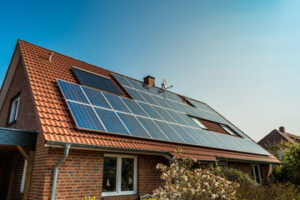Obtain high-quality backlinks to boost your website’s authority and ranking. You can do this by participating in guest blogging or obtaining mentions in online publications. You should also optimize your internal linking structure by identifying and removing non-performing pages.
Keep in mind that the number of outgoing links on a page can dilute its link juice. To avoid this, limit outgoing links to 2-3 per page and use the nofollow attribute on user-generated or low-quality links. Visit https://www.theprincipaldigital.com/ to learn more.

Link building
Link building is the process of obtaining links to your website or blog in order to improve search engine optimization. It is a form of digital marketing that involves outreach and building relationships within your niche. This can be done in a variety of ways, including guest blogging, social media marketing, and reaching out to other webmasters in your niche. There are many different types of links, but you should avoid using shortcuts such as buying links because they are against Google’s guidelines and may hurt your SEO in the long run.
A successful link building strategy requires patience because it can take several weeks or months to see measurable results. It is important to build links in a natural way that looks organic. This will ensure that you receive a good ranking for your keywords and increase the authority of your website. In addition to improving your seo, link building can also help you gain a wider audience and build brand loyalty.
While the goal of most link building campaigns is to rank higher in search engines, it’s important to remember that it is a business tool. Ultimately, your goal should be to increase traffic and revenue. This can be accomplished by creating valuable content, attracting a following, and building relationships with complementary brands.
There are a number of ways to build links, but it’s best to stick with reputable, white-hat strategies. This type of link-building technique is consistent with the rules set by search engines and can be used to improve your site’s credibility. It’s also more effective than using “black-hat” tactics, which are against search engine guidelines and can damage your seo.
Some of the most popular methods for building links include guest posting, press releases, and HARO (Help a Reporter Out). While these techniques can be effective, they must be executed correctly to be successful. It’s also a good idea to use a backlink audit tool, such as Semrush, to track your progress and make sure you are following the right practices. A thorough backlink audit can also help you identify issues and fix them.
Keyword research
If you’re an SEO, you know that link juice is an important factor in determining search engine rankings. The more reputable and authoritative sites that link to your site, the more authority you’ll have. However, you must be careful to avoid spammy links and link farms. These types of links are often marked as nofollow, which means that they do not pass link juice. Instead, you should use descriptive anchor text to help search engines understand what the linked-to page is about.
Using keywords in your content is a great way to attract more traffic and increase your website’s visibility. You can use keyword research tools to identify the most popular and relevant keywords. In addition, you can use LSI keywords to optimize your content. These keywords are similar to your main keywords and can be used to improve your rank in search engine results pages (SERPs).
While some people wince at the term “link juice,” it remains a useful concept. In fact, it’s a vital part of any SEO strategy. However, the amount of link juice a page receives depends on its quality. It’s important to create high-quality content that will encourage other websites to link to it. This can be achieved through a variety of methods, including guest blogging and social media marketing.
The strength of a backlink is determined by its credibility, reputation, and topical relevance. For example, a backlink from a popular coffee brand is more valuable than one from an obscure psychology article. Also, a link from a website with high Domain Authority and PageRank scores has more value than a link from a low-ranked website.
You can increase the strength of your links by participating in a netlinking campaign. This involves creating high-quality articles and posting them on other blogs or websites in exchange for a dofollow link. You should also diversify your anchor texts and ensure that they appear natural. This will prevent you from getting penalized by Google. Additionally, you can increase your authority by participating in industry events or writing expert quotes for journalists.
On-page optimization
When it comes to improving your seo, on-page optimization is one of the most important things you can do. In addition to keywords, on-page optimization includes optimizing other aspects of your website such as page URLs and content. It also involves making your site easier for users to navigate and read. While off-page SEO practices are more difficult to control, on-page optimization is something that you can easily improve.
The purpose of on-page optimization is to ensure that search engines can understand what a web page is about and whether it matches a user’s search intent. This is done by using keyword-rich titles, focusing on topical relevance, and providing valuable information to visitors. In this way, on-page optimization is the foundation of all SEO strategies.
Title tags are the first thing that a search engine sees when it indexes a page. They can be viewed in the source code of a page by right-clicking and selecting “view page source.” Title tags should accurately describe the contents of a webpage and entice searchers to click through. It is important to optimize title tags for both pre-click and post-click optimization, as search engines use them to determine which results to display first.
On-page optimization also includes using keyword-rich meta descriptions and optimizing a webpage’s internal linking structure. Meta description keywords are no longer a key ranking factor, but they can still be used to encourage searchers to click through to your site. In addition, links can help build authority and credibility by signaling to search engines that your pages are related to each other.
Image optimization is another important aspect of on-page optimization. By adding alt text to images, you can help search engines interpret the image’s context and relevance. This can also help visually-impaired users who rely on screen readers to navigate your site. In addition, ensuring that images have descriptive and concise file names can improve the user experience by providing helpful information about what is in an image. On-page optimization can be time-consuming, but it is worth the effort for any business that wants to improve its organic search performance.
Content creation
Content creation is the process of writing and publishing new content for your target audience. This can include written content, infographics, videos and more. Regardless of the format, all content must be useful, accessible and effective for your target audience. It should also align with your business goals and user needs.
It is important to start your content creation process with a clear goal and a clear plan. This will help you avoid wasting time on irrelevant or unhelpful content that does not meet the demands of your audience. Ideation is the first step in the content creation process and there are many ways to generate ideas for your content. You can start with your own thoughts, ask your audience what they want to hear about, or analyze your competitors’ performance.
To make your content creation more efficient, consider using a template. This will help you stay on track and ensure that all the parts of your content come together in the right order. This will also help you avoid wasting time on unnecessary content. You should also use tools to improve your content’s SEO value. These tools can help you write better headlines and add more keywords to your articles.








